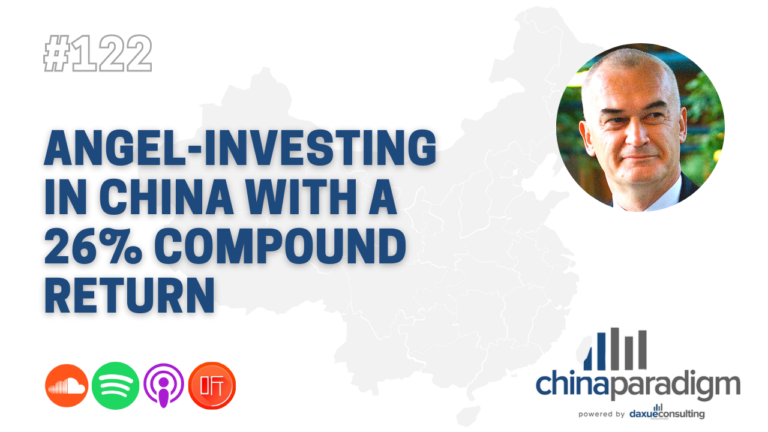China Paradigm interviewed Matthew Spriegel, founder and CEO of Atiom, a mobile app to improve employee training in China, to have a better understanding of human resources in China and to understand how online training can be more beneficial than traditional training.
Matthew Spriegel, a China enthusiast who has made a great entry into the world of human resources in China
Graduated from Allegheny College, Matthew Spriegel arrived in China in 2009 as an English teacher. He worked for almost ten years in education, advertising, and healthcare in China for companies such as Boehringer Ingelheim and STEM Healthcare. He started being an entrepreneur in China a long time ago with his friend Devin Licastro by creating, first, a platform to learn English and then an online t-shirt sales company. In addition to these entrepreneurial activities in China, he also carried out various quality control projects.
In 2017 they founded ATIOM, a foreign company in China that provides customized mobile training platforms mainly for F&B and hospitality clients. Today Matthew is primarily responsible for business development and finance partnerships.

Matthew Spriegel has immersed himself in Eastern business culture and is now fluent in Mandarin, both written and spoken.
ATIOM, the magic solution to improve your employee training in China?
Atiom is a mobile-based app focusing on training, communication, and team building. Today the platform is their core business, but they also have incorporated some more professional services, including content. They work with different partners to deliver face to face training for their clients.
From the very beginning, Atiom succeeded in getting great clients, including two big hotel brands. Currently, they have dozens of paying clients in retail, hospitality, automotive, and also a big company in facility management.
Matthew Spriegel came up with Atiom’s idea by attending a long and tedious training meeting in China.
‘‘After about one hour every day, I looked around the room, and no one was paying attention. The training manager looked completely exhausted from traveling all around China conducting these training. So I thought there must be a better way to do this.’’
Atiom, therefore, aims to make it easier for employees to understand the company’s rules and the position.
‘‘Most of the time people will receive an HR handbook or employee handbook. It’s extremely important in China. But most people will receive the book and then put it in their desk drawer.’’
That is why Atiom means the coming together of spirit and matter:
‘‘We thought that this is like the coming together of the managers and their teams and developing more touch points between the different colleagues within an organization.’’

How can gamification in China help employees?
Matthew Spriegel explains that having a platform that looks like a small mobile game and a reward principle greatly helps to learn. However, he remains cautious when he talks about gamification in China. The training remains professional, serious, and thorough.
‘‘We have different team competitions. There is a point system. So just like in China, you have like a Fitbit walking steps competition with your friends on Wechat, we have incorporated some of those elements in our platform’’.
Employees in China can also get badges like virtual prizes when they achieve specific goals.
‘‘With Atiom, employees can engage with one another, and it does help build some team camaraderie. We try to encourage healthy competition.’’
How to choose between developing an app in China or having a Wechat mini program?
This depends, of course, on your goal and the vision of your foreign business in China. As a mobile training company in China, the choice was quite simple for Atiom: they have their own IOS and Android app. The first reason was that a mini program on Wechat is limited. An entrepreneur in China has more freedom when developing his mobile app.
Then it is also for security reasons. As their platform is encrypted, if someone were to take a screenshot of sensitive information, the information would follow them.
And finally, it’s a matter of distraction.
‘‘The big objection for me against Wechat enabling training is that by the time that someone gets onto the program to learn something, they probably checked 15 different group chats. So we want them to really be focused only on improving themselves from a training capacity’’.
Why join a start-up incubator in China?
In recent years, startup incubators have flourished from all over the world. These structures serve to support startups in their development through multiple supports so that they can focus on their economic development more calmly. Atiom has joined China Accelerator, a start-up incubator in China to receive personalized assistance as a foreign entrepreneur in China.
They chose China Accelerator, under the good advice of EO, because this start-up incubator in China does not only offer premises for working. They provide financial support for the most promising projects and make their teams of experts available.
‘‘You have about one or 200 different mentors that you can tap into that are from the health care industry, from branding, music, food, and beverage and many different industries and walks of life that you can tap into that are considered industry experts.’’
Listen to this episode here:










